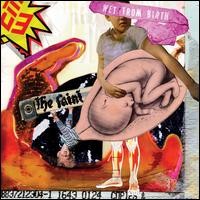|
|
|
|
|
|
|
|
|
|
|
|
|
||||||||||||||||||
 |
|||||||||||||||||||
|
|
|
|
|
December 13, 2004 ../ File-Sharing Goes To The Supreme CourtThe United States Supreme Court has agreed to review the August ruling by the Ninth Circuit Court of Appeals that determined that file-sharing companies cannot be held responsible for the trading of copyrighted material using their decentralized technology and networks. Citing the ground-breaking 1984 "Betamax" Supreme Court decision that involved the use of video tape recorders to record copyrighted works, the justices ruled that Sony, maker of the Betamax, was not liable for copyright infringement by their customers because the recorder had legal uses.The determination that the software of the defendants, Grokster and Streamcast, have legal uses has become the key point in the case. Previously, both Grokster and Streamcast argued that they don't have the technology to filter out copyrighted networks, and thus could not be held liable for the actions of their customers. The new focus on legal uses has been a gift to Grokster and Streamcast. The "we can't filter" defense was thin to begin with, but after these companies revealed that they were actively removing child pornography from their Peer-To-Peer (P2P) services, that excuse became anorexic. However, the three appellate judges concurred and stated Grokster and Streamcast can't control how their customers are using their technology. In their appeal to the Supreme Court, the entertainment companies state "Grokster and Streamcast have built their businesses to capitalize on (music and movie) infringement." While this is painfully obvious to most, Cindy Cohn, Director of Legal Affairs at the Electronic Frontier Foundation, an advocacy group representing Streamcast, feels that the Supreme Court will rule in favor of her client "in a way that upholds the spirit of (the) Betamax (decision)." Will this be the final nail in the coffin for the entertainment industry? Or will they return to their glory days of 2001 when they effectively killed off "Napster" with a series of high-profile lawsuits? A lot of things have changed in just three short years, and despite the downturn in music sales, the entertainment industry has lost serious momentum in the legal arena. Even Congress, who pledged to draft laws to combat copyright infringement, has not been able to pass legislation to permit criminal prosecution of individuals who illegally trade music and movies online. So now it's up to the Supreme Court to decide the fate of online file sharing. If the past reveals anything about Supreme Court decisions, it seems unlikely that the United States' highest court will go against the Ninth Circuit that based its ruling on a previous Supreme Court decision. However, Diane Seltzer, a Washington D.C. attorney feels that the entertainment industry has a good chance for a reversal. "The Ninth Circuit is the most liberal circuit in the country, and the composition of the Supreme Court is much more conservative than it was in 1984. Only three of the Justices that were on the Supreme Court in 1984 - namely, Chief Justice Rehnquist, Justice Stevens, and Justice O'Connor - are on the bench today. So with the conservative climate of the current bench, it could be very close." The Future: As they say, the writing is on the wall. The recent blows handed to the entertainment industry by the courts and lawmakers reveals that they have to take this battle to a new front to regain precious ground lost since the Napster decision. Combating the incredibly poor experience that many users face with the current crop of P2P services by instituting smooth, easy to use systems like the new Snocap technology, is one way to fight piracy without abandoning the free trading systems that are now the norm. The movie industry has already started exploring ways to combat individuals who video tape current movies by developing technology that renders the screen opaque when filmed from the audience. And the music industry and really stepped up its efforts by posting dummy audio files of the latest chart toppers on all the services. However, the real solution is developing compelling high quality music content on DVD. Surround Sound Audio with a visual component. The multimedia format and the large file size make it prohibitive for the masses to effectively swap online, and the enhanced content make it worth the $18.98.
Copyright © 2004 Futuremusic® All Rights Reserved. |
|
|
 As the name correctly implies, Experiments In Sound, is Futuremusic's latest endeavor for pushing electronic music technology to the very edge of what's possible. Experiments In Sound grew out of Futuremusic's avant-garde events in New York City that featured DJ's taking mixing and live sound reinforcement to a whole new level with the very latest gear and software. Be the first to hear about Experiments In Sound by joining Futuremusic Direct.
Part of Experiments In Sound, TestDrive will feature the lab results of our DJ Experiments so that everyone can get in on the action. Take the latest electronic music releases, mix vigorously with bleeding-edge DJ technology in a large beeker, and then cook the hell out of it! Be the first to hear about TestDrive by joining Futuremusic Direct.
Futuremusic wants to thank everyone who participated in The Next Big Thing 2004. John Digweed, Beatport, Alienware, M-Audio, Native Instruments, IK Multimedia, PVDJ, PK Graphics, Ableton, The DubHouse, Propellerheads, Technics, FreeFloat, The Church, PCDJ and every DJ who entered this year's event thank you. From the sheer number of quality mixes, we can tell you that dance music is thriving in the United States. The amount of outstanding talent and creativity really blew us away, and every DJ who's putting their heart, mind and soul behind the music is a winner. John Digweed has made his decision and the winner is...
News Archives |
|
|
|
|
|
|
|
|
|
|
|
|










